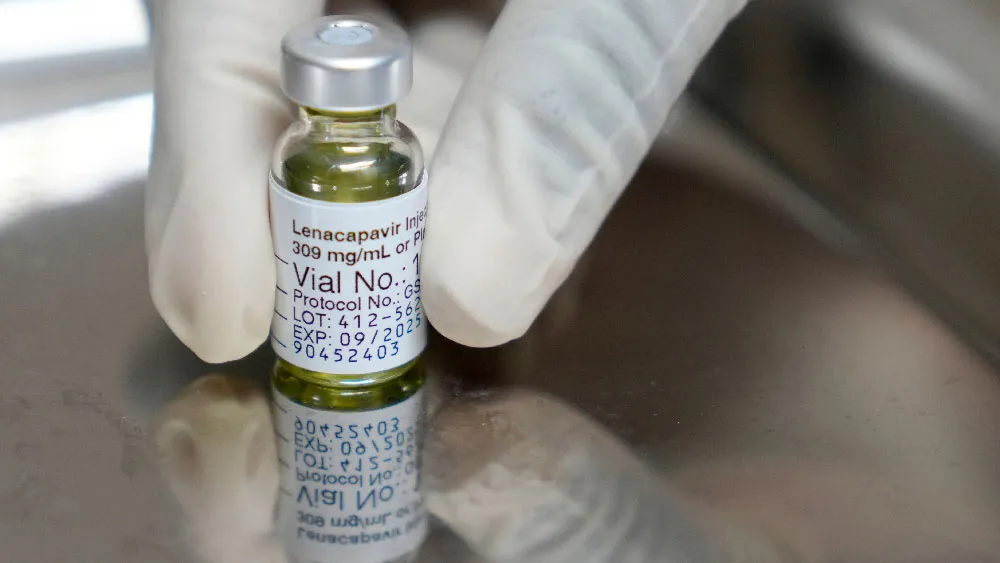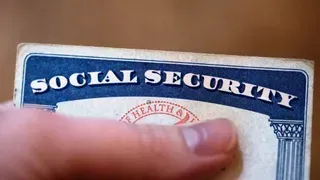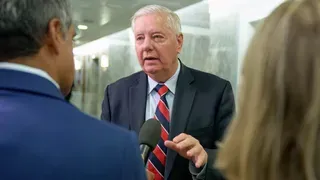October 21, 2010
Chicago City Council committee: end gay blood donor ban
Joseph Erbentraut READ TIME: 3 MIN.
With their passage of a resolution calling for the reversal of the federal ban of gay and bisexual male blood donors, the Chicago City Council's Health Committee last week joined a growing number of influential entities that have spoken out against the policy.
The policy, which has been on the books since 1985, bars any man who admits to having engaged in sexual activity with another man at any point since 1977 from donating blood for life. Gay Chicago alderman Tom Tunney and other pro-repeal advocates claim the ban perpetuates negative stereotypes of gay men as "public health threats" and could even threaten the nation's blood supply in the not-so-distant future. Already this year, city councils in New York and Washington, D.C., have also called for an end to the ban, as did the California Assembly's Judiciary Committee in 2009.
Advocates for the ban's repeal say recent action from city governments has added momentum to the often complicated battle. While the U.S. Department of Health and Human Services' Advisory Committee on Blood Safety and Availability acknowledged the current policy as "sub-optimal" in June, more research is needed to arrive at a policy that successfully allows men who have sex with men (MSM) to donate blood without threatening the safety of the nation's blood supply.
Nathan Schaefer, director of public policy at the New York-based Gay Men's Health Crisis, said most of the models proposed thus far have not offered enough of an improvement on the current policy as they continue to stigmatize MSM, temporarily deferring them in a manner on par with high-risk heterosexual donors. Schaefer's organization has called for a clear outline of how HHS will support the research needed to arrive at an effective and inclusive new policy.
"We don't yet know exactly how to delineate low-risk men who have sex with men," Schaefer told EDGE. "Some alternative policies that have been evaluated have not made either us or the policymakers very comfortable. Any alternative policy we'd advocate for has to both maintain and potentially enhance blood safety."
Schaefer said Italy and Spain offer a behavior-based model with which he feels more comfortable. Both nations temporarily defer any potential blood donor - gay or straight - who has had sex with multiple partners in the last six months.
While research is needed, advocates for repeal also say legislative leadership on the issue-namely Congressman Mike Quigley (D-Ill.) and U.S. Sen. John Kerry (D-Mass.)-has provided crucial support to their efforts. Quigley told Chicago activists last month he was confident the gay blood donor ban would be history by 2012-an assertion Jim Pickett, director of advocacy of the AIDS Foundation of Chicago, feels is realistic.
Pickett also acknowledged the ban's repeal is a complicated issue, owing to the high emotion attached to its history that dates back to the height of the AIDS crisis when many hemophiliacs and victims of other bleeding disorders contacted the virus through blood transfusions. While many hemophilia activists support allowing low-risk MSM to donate, they embrace reform cautiously.
But gay blood donors also need to be treated as individuals Pickett said. The stigma perpetuated by the ban, some advocates say, counters prevention messages on HIV/AIDS for high-risk populations.
"We all don't have HIV. We all don't engage in behaviors that create risk for HIV infection. We all don't have sex for that matter," Pickett told EDGE. "So let's ask screening questions that talk about relevant behavior. Let's follow the science. By following the science, we can enhance the safety of the nation's blood supply-something that benefits each and every one of us."
Without a new policy soon, William McColl, political director of AIDS Action in Washington, D.C., said a shortage of blood donors could potentially become a reality. San Jose State University in California and other academic institutions have suspended on-campus blood drives due to the ban on gay donors.
"This issue is not going to go away," said McColl. "We do not intend to pit different communities that are part of the HIV community against each other, but we want to try and find a solution that responds to the blood safety concerns and, at the same time, responds to the issues raised by the stigma against the gay community and people living with HIV."
McColl said he, like other advocates nationwide, will continue to push for increased research into addressing the urgent matter from both sides of the equation, striving for a balance between lessening the stigma against gay men and protecting the blood supply's safety for everyone involved.
"We're going to work on this issue until we find a solution that benefits everybody and doesn't leave any groups out in the cold," added McColl.
Joseph covers news, arts and entertainment and lives in Chicago. He is the assistant Chicago editor for The Huffington Post. Log on to www.joe-erbentraut.com to read more of his work.






